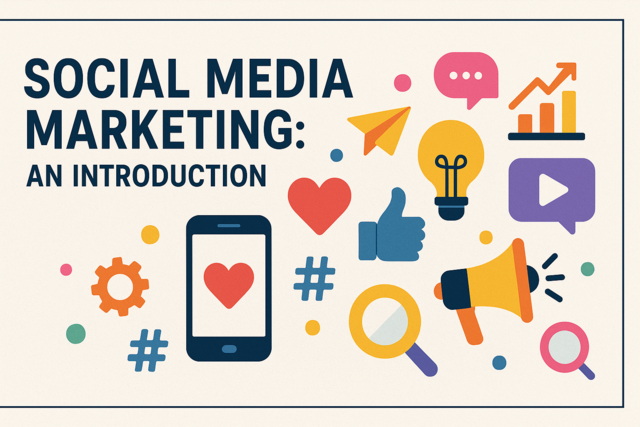Internet Marketing
Increased Visibility
There is no doubt about it. In today's marketplace your company has a very limited and local visibility if you do not have an Internet presence. Creating a site or online store is the beginning of your Internet presence and the beginning of your company's ability to market to the international and Internet community. Trying to conduct Internet marketing without a website is like putting flyers on cars parked in your local community and not having a store front to direct them to – it simply doesn't work.
Once you set up a website for your company, then you are ready to begin an Internet marketing program that can help your company, its presence, its reputation and its productivity. Select a domain name that reflects your company's name or its major products or services. You can spend as little as $4 per month and the site costs roar up to $25 per month for more sophisticated features.
To begin the process of looking into how to secure your company's domain name, go to Google or Yahoo and search out "domain names," "cheap sites," or a similar phrase and you will find an enormous list of resources for everyone from Domains Are Free to Go Daddy . You will want to take a look through the possibilities and weigh into their presentations to see if they fit your needs.
When you set up your company's site, you are suddenly visible not only to your local, state or national community, but you are equally exposed to the international community. Your company's increased visibility to the international and national communities can rocket your business to a new level of productivity and sales.
Increased Marketability
Once you have created your company's website and taken the risk of national and international visibility, you are then ready to take advantage of all that exposure by using Internet tools that immediately increase your marketability. For instance, you are suddenly positioned to tap into any number of "social networks," i.e. LinkedIn or XING , and connect directly with other business people around the nation and around the world.
Global Exposure
Never underestimate the power of your company's immediate global exposure. When you set up a site and begin an Internet marketing campaign, you are suddenly thrust into the global marketplace. You are, by definition, marketing your company on an international level. You may not see a global response right away, but it will show up.
Eventually, you will make a decision whether to pay for international marketing exposure or whether to handle international business as it comes. You will decide if the profits offset the costs by a reasonable profit margin and whether you can gain significantly by increasing your international sales. For certain types of companies, the global market will be one to pursue and for others it will become a non-issue. But, the advantage of having an Internet presence and Internet marketing strategy is that you will be positioned to more easily decide your participation in the international market and you will be ready to take opportunity by the horns.
Small & Limited Overhead
Both your website and your Internet marketing represent relatively small and limited overhead in terms of your overall business costs. Websites can be set up for under $500 and maintained for under $300 per year. Internet marketing via search engines can be handled for as little as $150 a month, or you can handle it virally for virtually nothing.
Immediate & Direct Communication with Clients
Through Internet marketing you have an immediate method for communicating directly with your clients and your potential clients. Your website is the one place where everyone who is ever interested in doing business with you can immediately look and refer to find out what you have on sale this week, which discounts are applied to this week's sales, and what is coming up in your marketing efforts. Whether your Internet marketing is focused on Google ads or email marketing, with an Internet presence, suddenly your clients know where to look and find out what you're up to.
When your clients and prospective clients know where to find you on the Internet, they feel like they have the latest news on your company. They feel like their interests are being attended to and that you're communicating with them in a very responsible fashion. You are relying less on your local store staff to talk to them or sell them your products and allowing them a central place in which to look and get their questions answered at their convenience.
When people can find answers to their questions at any hour of the day or night, they are more inclined to turn into satisfied customers. They are less likely to complain that they "didn't know" something. Your clients will immediately feel like they have the information they need to make a decision without having to pull it out of a store clerk.
Increased Sales & Convenience
In essence, all of these business advantages to Internet marketing add up to increased sales volume and customer convenience. There is an unspoken increase in customer trust when a company "goes online." Your customer quietly sees your company as modern, up-to-date and competitive. You will be more likely seen as being in-touch and worthy of your pricing.
WORDS TO KNOW
-
Domain names – Also known as your web address. The domain name is the name of the website and it usually reflects your company name or product directly. They are purchased as part of your host package when you pay for host services.
- Social networks – Internet gathering places; online clubs where people with like interests go to exchange information, and make contact and chat about common interests. These networks are usually free of charge; sometimes more professionally oriented networks charge for the upper level memberships.
- Chatrooms – Rooms in which to participate in the online conversation via a "chat" system. Chatrooms exist in both social networks and in individual websites. Sometimes websites will build out a chat space in which to post any number of articles, comments, questions and responses. The more common chatrooms are those in which people with a common interest gather to talk about that particular subject.
- Viral market – A market or marketing approach that exists in the virtual world of the Internet with the marked behavior of a virus. The market and the marketing approach function by spreading information, site links, referrals, contact details and services information by word of mouth or person-to-person contact using each person's individual series of "networks".
- Global marketplace – The global marketplace is a reference to the various crevices in which a person can find international connections on the Internet. Sometimes the marketplace is social, but more often it is business oriented.
SEOs -- How To Optimize Your Site and Market Your Featured Products
Keywords are words which accurately and adequately describe your products or services. They are words which are used repeatedly in the content of each page in a professional manner so that the page is considered "relevant" to that keyword. Some search engines suggest that a keyword is one which repeats in the content of the page at least 10 times. However, "stuffing" your web page with the keyword(s) too many times is considered "search engine spam" and may adversely affect your page ranking. Also, placing keywords in your content that have no relevance to the page topic will also negatively affect your page ranking in search engines. For example, if you have a web page about "video game reviews" and because millions of people do a search for "free pokeman games", and you decide to "stuff" this web page with the keywords "free pokeman games" even though that has nothing to do with your page about "video game reviews", search engines are smart enough to figure this out and will penalize your page ranking (and perhaps your entire site).
If you use a site builder for your site, then you will need to follow the site builder's tutorial or instruction documents to determine where to insert keywords for search engines as they will not only need to be placed in your site content but also in the "keyword" meta tag of the page (which is invisible to the naked eye).
Whatever you do, remember these are important details that directly affect the effectiveness of your site in terms of how well it can be searched and found by potential clients. True optimization of a website is a full-time effort that one must pay attention to constantly.
When you buy search engine advertising, you will find that you will limit the number of keywords you pay to sit in the number one ad spot so that you can afford your advertising budget. We will cover more of that in Lesson 4.
So now we've learned that you can attract clients to your website in 2 ways: organic search and paid/sponsored search. Organic search--when your site is well-optimized--can potentially bring in many "free" clients/customers if you rank well for your site's keywords terms. Obviously, you will want to invest in making your website as search engine optimized as possible to improve your "free" organic search rankings. However, to also bring visibility to your website, you should seriously consider creating a budget and investing in "paid/sponsored" search advertisement as well.
It is good to point out here that SEO is also an interchangeable acronym for Search Engine Optimizer. In other words, an SEO may also indicate an employee or contractor whose sole job for your company is to keep your site top-ranking on the search engines.
At a practical level, it is not necessarily vital to concern yourself with hiring or contracting an SEO to take your company to the internet. If you are a struggling upstart, then use your upstart dollars on more pressing needs, but take the time to learn how to optimize your site for your own sake. It is not a step you want to skip because it is, indeed, vitally important to your site's success.
On the other hand, if your company has been in business a number of years and you simply haven't taken it to the internet yet, then find a way to fit some money into an SEO budget. It is ideal and best to address SEO issues at the upstart of your website. After the site is designed, it can become more difficult to optimize the site without making further or radical new design changes. In either position, you may consider contracting someone to handle your SEO needs. But a word of caution on contracting an SEO: research them; get references; and preferably use them through an established system of accountability, such asGuru,. Guru uses an escrow system for payment and they have a feedback system by which the professional is ranked. If the professional is not really very good at what they do, they do not wind up in the top section of their ranking system. It is always good to use a system in which it is easy to see work samples and in which the professional suffers if they don't take proper care of the client.
.
WORDS TO KNOW
- Search engine – A centralized source of internet information that functions much like a library.
- Spiders – Internet and site programs that "crawl" through your site in search of certain information such as keywords.
- Keywords – Words used repeatedly in your site which are referenced and indexed much like a library. Think of finding an old-fashioned index card in a library and all of the sources of related information.
- Surfer – A computer user who queries a search engine for specific information according to keywords.
- Search Engine Optimizer – A person who tends to the website to make sure all of the keywords are correct and fit well with the site's content and subject matter. This person also cleans up ERROR pages, dead links and other site information that is out of date or could hinder the effectiveness of a surfer's search.
- ERROR pages – An error page is a page that pops up in a search engine when you have been sent to a link or page that has been removed from the site by the site owner.
- Dead links – Similar to ERROR pages, a dead link is a link that goes to nothing. When you click onto a link and some generic page from the web host pops up, it is considered a dead link.































